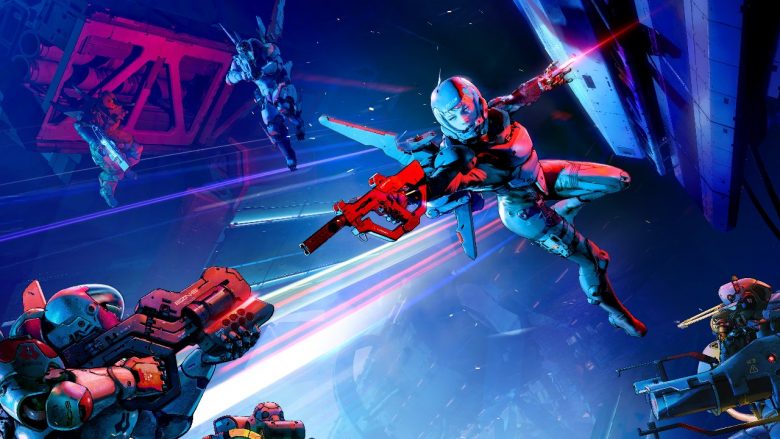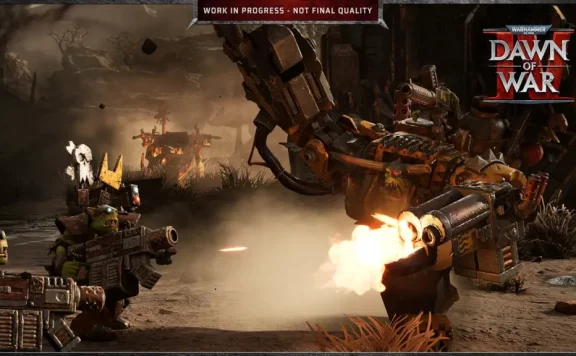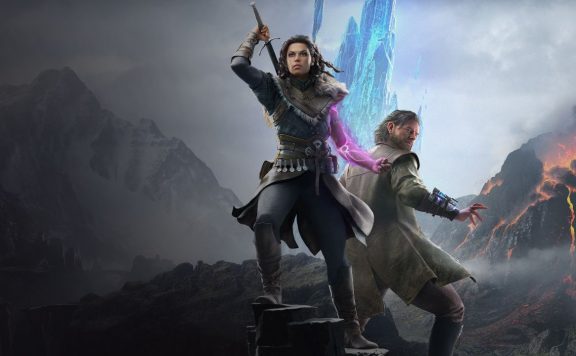The premise for Reikon’s Metal Eden is lifted wholesale from Richard K. Morgan’s excellent sci-fi noir, Altered Carbon. Humans have created Cores, small discs identical in function to Morgan’s Stacks, which allow the consciousness to be downloaded and uploaded between artificial bodies. But where Altered Carbon focuses on what that means for the human condition, Metal Eden instead wonders aloud what it would be like to just be Ghostrunner.
Aesthetically it’s incredibly similar to Slipgate’s cyber-ninja slice-em-up, with a matching palette and general air that everything was built with neon and chrome. Including you, a hyper-unit known as Aska. With your consciousness downloaded you’re on a mission to… do something, possibly involving explosions.
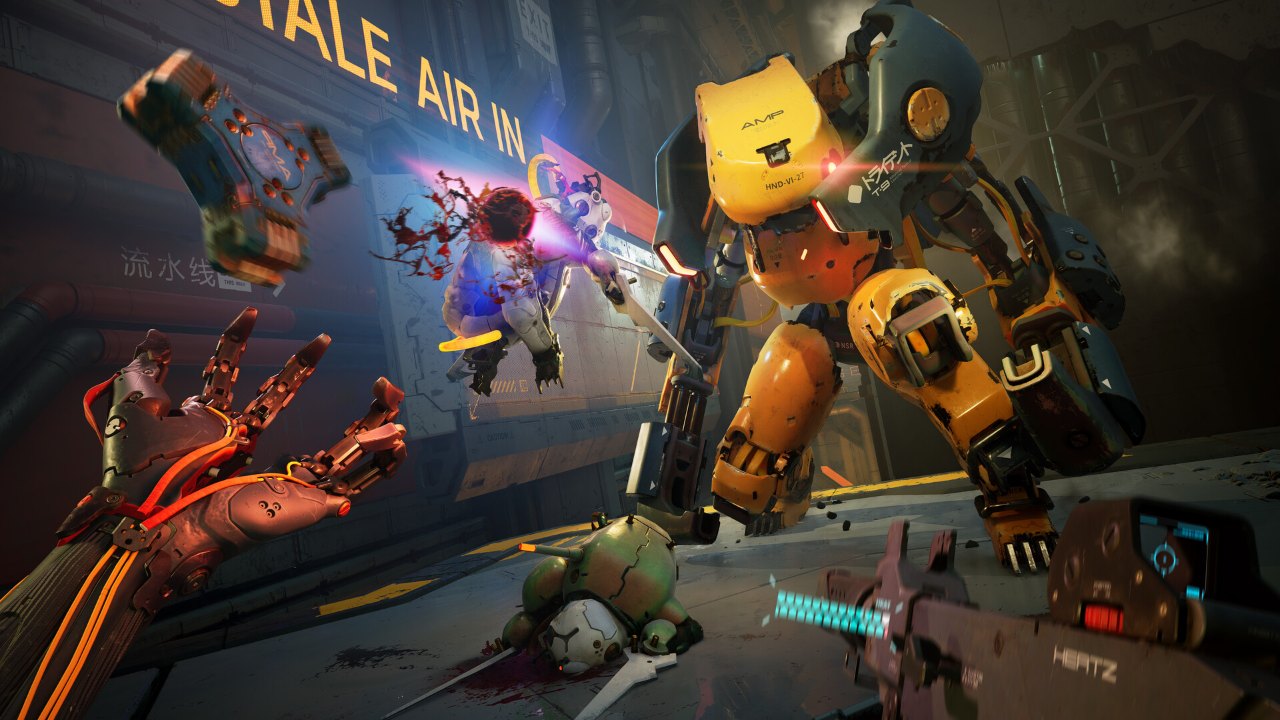
Story isn’t really a strong suit here. Your primary objective is to find lost Cores and escape the deep space base you’ve awoken in. Weirdly, your early-game AI guide, Nexus, talks about “this run” which really made me think Metal Eden would be a roguelite. It’s not though, and instead takes place across about four hours worth of stringently linear gameplay. There are just eight levels to get through, and such is the relentless pace it’s over before you know it.
Gameplay has two primary elements. The first is gun combat, which mixes the usual shotguns, plasma guns, SMGs and handcannons in with a powerful melee attack and the ability to rip out enemy Cores. These can be thrown like grenades, or consumed to boost your health and charge up a more powerful melee attack that breaks shields or staggers larger enemies. It’s enjoyable gunplay, with satisfying feedback and as much precision as you can expect with a lack of iron sights. Combat takes place primarily in tight arenas where you’re given a set number of enemies to chew through before the door opens and lets you progress.
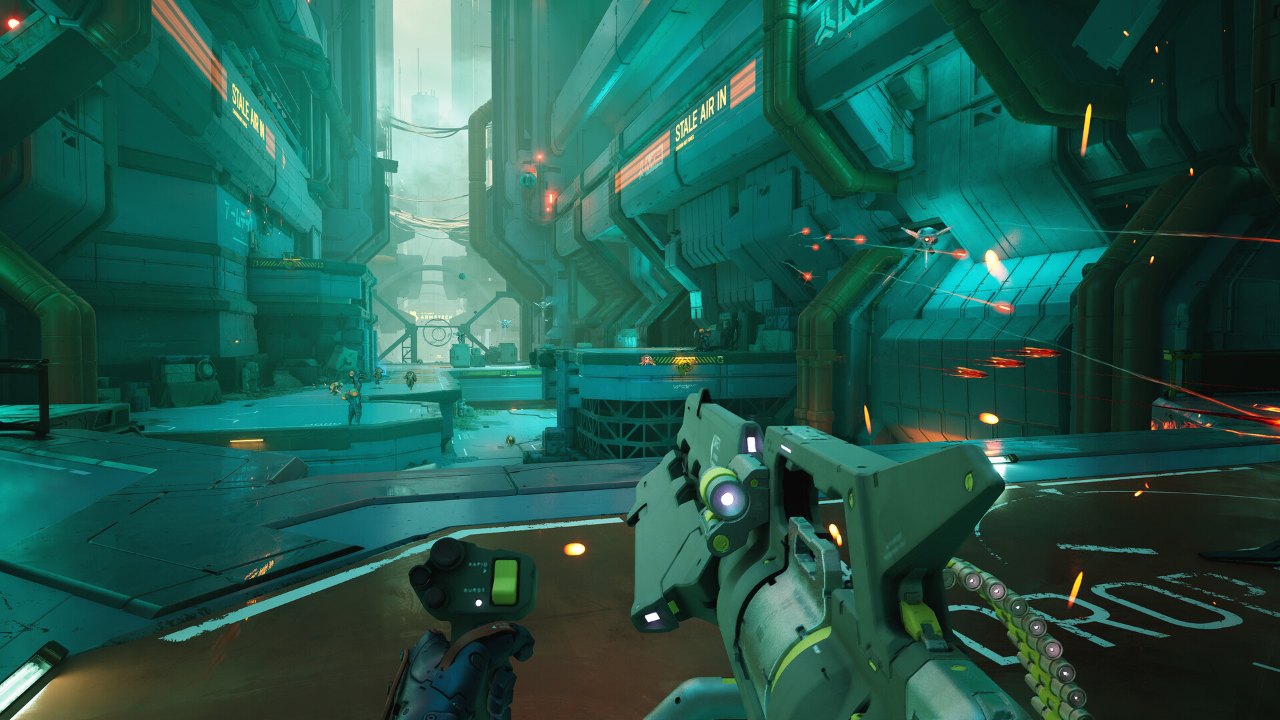
In-between combat scenarios you’ll use Aska’s parlour abilities to enjoy the second main core element, which is the fast-paced, surprisingly precise movement. Like Ghostrunner you’re here to chain moves into seamless transitions through non-combat areas, double-jumping and jet-boosting, wall-running and, ah, rolling around as a giant ball. Yeah, at a certain point Aska learns to become a huge metal sphere that can steamroll enemies or zap them, and get her around even faster.
What makes Metal Eden feel ultimately disappointing is that what’s here is pretty good fun, there’s just not enough of it, and as pretty as it looks, it’s also as deep as a petri dish. Aside from the guns and occasional ball transformations there’s little to capture your imagination. It’s a short, almost perfunctory adventure that takes its paper-thin story way too seriously. The first hour or so of the game is absolutely plagued by Nexus’ non-stop prattling, spouting pretentious nonsense about humanity and immortality and lifting your head out of the darkness or some other clichéd melodrama. It’s incredibly grating, clearly aiming to ape the writing in Ghostrunner but falling short of even that bar. I get the intended effect, but it’s truly eye-rolling stuff.
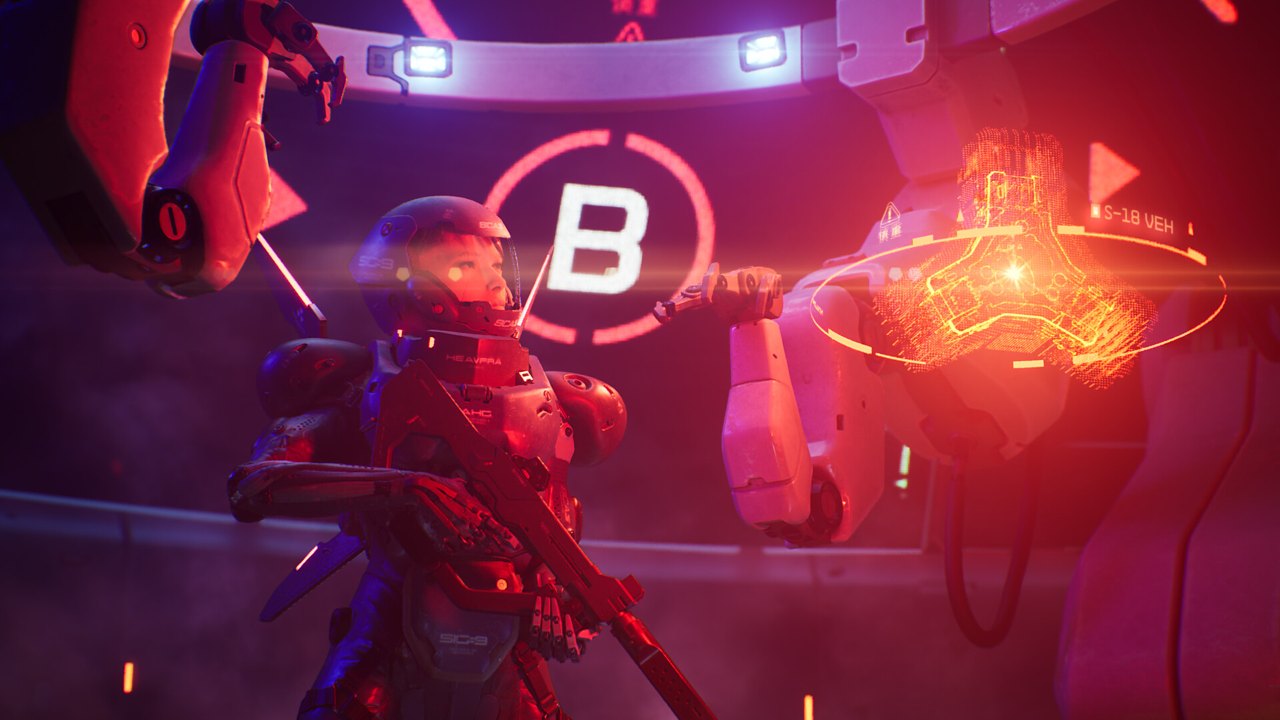
There are some shades of Severed Steel in the shooting, which is no bad thing, and the cutscenes are gorgeously rendered. Again, the dialogue here is clunky, but at least it’s super pretty. And what Metal Eden struggles to convey with its story, it almost makes up for with its action. There’s a highly competent shooter here, but it’s just missing something. Maybe money, or developer confidence, or a strong direction. Maybe all three. Even at the comparatively low price it’s hard to recommend outside of a sale because it’s just so brief an experience.
But it has put developer Reikon on my radar. It’s more coherently put together and certainly better looking than a lot of lower-budget indie shooters, and while the world is hardly fresh, it marries enough ideas with enough innate style to stick in the memory despite its brevity. It’s not particularly big or clever, but Metal Eden is a beautiful, bombastic blaster that entertains while it lasts.
